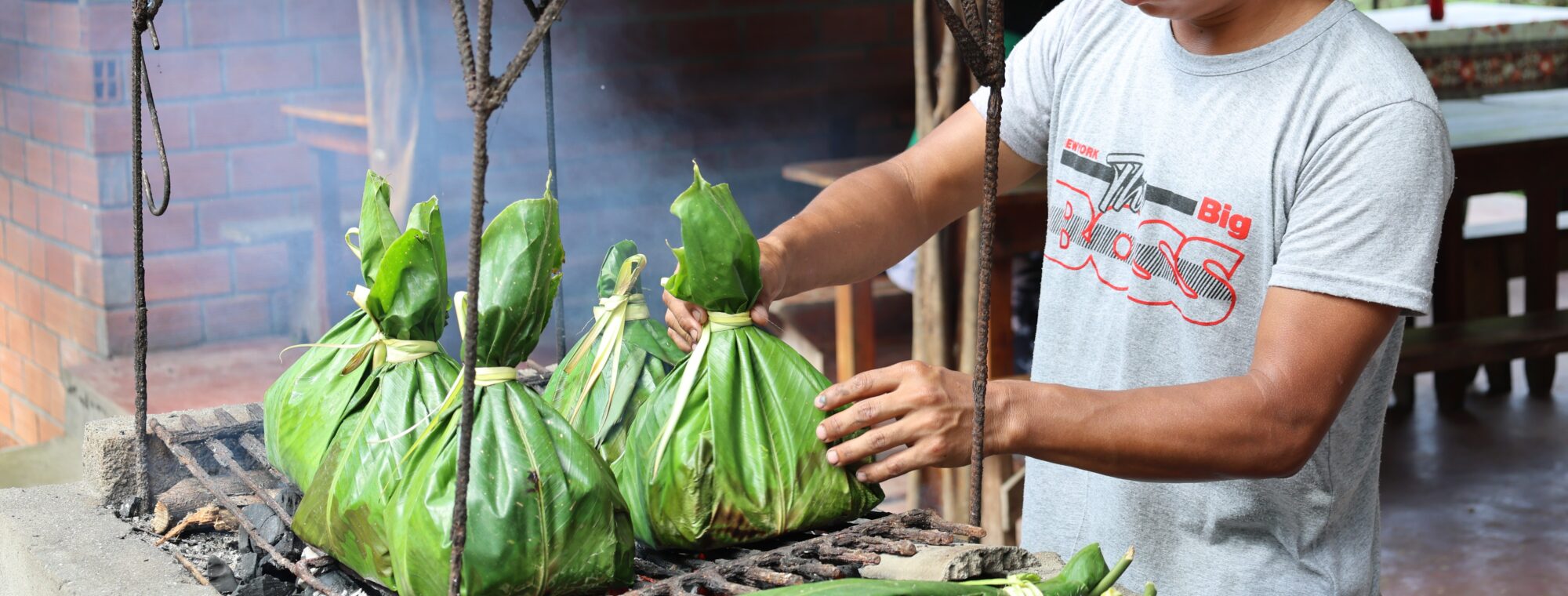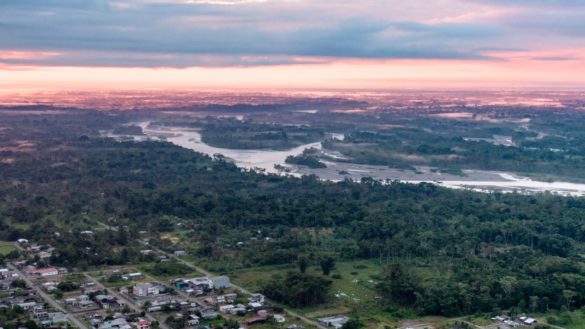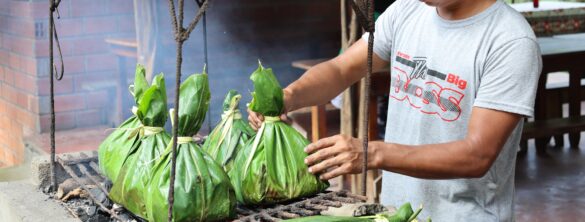As the world gathers in the Amazon for UNFCCC COP30, subnational governments across the world are showing how they are advancing integrated strategies that combine climate adaptation, biodiversity conservation, and social equity, in their own territories. Together, they demonstrate that resilience is not only about responding to environmental challenges, but about transforming territories into fair, sustainable, and people nature-positive systems: that is what Just Resilience is all about.
From concept to territorial action
Just Resilience means ensuring that responses to climate and biodiversity challenges are not only effective – but also fair, inclusive, transformative and grounded in local realities. The concept challenges conventional climate adaptation approaches by asking questions often overlooked: Resilience for whom? Who decides, and who benefits? It ensures that adaptation measures empower the most vulnerable communities while protecting the ecosystems they depend on, particularly in biodiverse regions where Indigenous Peoples and local communities have sustainably managed territories for millennia. Just Resilience tackles the root causes of vulnerability – from poverty and exclusion to environmental degradation – and empowers communities as true agents of change.
The concept gained practical expression through the Breakthrough Workshop on Indigenous Economy and Just Resilience held in January 2025, in Napo, Ecuador. Co-organized by Regions4, Nature4Climate, and Wiñak, with support from the Scottish Government, CONGOPE, Nature and Culture International, the Global Alliance of Territorial Communities (GATC), and the Environmental Defense Fund (EDF), the event brought together regional governments, Indigenous Peoples, and global experts to explore how Indigenous economic models can drive equitable and nature-positive resilience. It also showcased concrete actions and innovations from Ecuador’s Amazonian provinces of Napo, Zamora Chinchipe, Morona Santiago, and Pastaza.
Case Studies of Just Resilience in Action
Resulting from this workshop, nine case studies from Latin America have been developed to demonstrate how Just Resilience is being applied across territories: from provincial governments in Ecuador to Indigenous and community-led economies in Peru, Mexico, and Brazil. Together, they show how biodiversity conservation, climate adaptation, and social equity converge in territorial innovation.
Ecuadorian Amazon
Across Ecuador’s Amazonian provinces, subnational governments are implementing policies and initiatives that connect biodiversity conservation with social inclusion and local development. Global frameworks are bridged with community realities, transforming governance into a driver of climate and social resilience:
- Pastaza – Indigenous-led REDD+ Plan: Ecuador’s first subnational REDD+ initiative, co-governed by seven Indigenous nationalities, aligns forest conservation with self-determination and local development priorities.
- Napo – Chakra Seal Certification: A pioneering certification system for agroforestry products rooted in ancestral Kichwa chakra practices, linking sustainable agriculture, biodiversity conservation, and fair trade.
- Zamora Chinchipe – Gender-responsive Forest Management: Integration of gender equity into the “Sembrando Vida” Plan empowering women as key actors in forest conservation and adaptation.
- Morona Santiago – Tarímiat Pujutaí Nunka Reserve: A 4.2-million-hectare protected area co-managed by Indigenous peoples, combining conservation with cultural identity and territorial governance.
Likewise, other Latin American regions are advancing similar territorial approaches to Just Resilience as it is the case of Paraná, in Brazil, which showcases a shared management approach to restore forest ecosystems
- Paraná, Brazil – Shared Management of the State Forest: A participatory forest governance model for restoring ecosystems through joint action by local authorities, communities, and civil society through restoration, environmental education, and participatory planning.
Community Models for a Living Earth
Beyond subnational policy action, Just Resilience is also advanced through ancestral knowledge, solidarity, and biodiversity-based production. A set of indigenous models show how communities build resilience through economic practices that sustain both people and ecosystems, and how regional governments can learn from and support these approaches through enabling policies, technical collaboration, and the recognition of local leadership.
How communities are building resilience:
- Amazonian Chakras, Ecuador: Traditional Kichwa agroforestry systems revived by associations such as Wiñak, Kallari, and ASOPROMÁS, combining food sovereignty, biodiversity protection, and women’s leadership in community economies.
- AMARCY, Peru: A co-management model linking Indigenous communities with national parks to protect over 75,000 hectares of forest through sustainable Eshpe cacao agroforestry and inclusive value chains.
- Tosepan Titataniske, Mexico: A cooperative federation of 45,000 Nahua and Totonac families in Puebla promoting agroecology, fair trade, housing and ecotourism programmes that enhance climate and social resilience.
- Limaxtum, Mexico: Totonac women in Veracruz leading the Pimienta Gorda–Milpa system, combining ancestral agroforestry with ecological innovation to strengthen food sovereignty, biodiversity, and community well-being.
These territories, diverse in geography and culture, share a common vision: resilience that is not only ecological but also social, economic, and just. It is driven from the ground up by local and Indigenous actors. And subnational governments have much to learn from these experiences, and a key role to play in creating the policy and financial conditions that allow them to thrive and scale.
A living example of transformation: The leading role of CONGOPE
Among the initiatives driving this new vision of subnational action, the Consortium of Autonomous Provincial Governments of Ecuador (CONGOPE) stands out as a catalyst for Just Resilience in Ecuador and beyond. The organization demonstrates that subnational governments are not merely implementers of national policy, but innovators capable of developing replicable models that bridge multiple scales of governance.
CONGOPE facilitates collaboration among provinces, connects territorial action to national climate plans, and brings Ecuadorian experiences to international platforms like Regions4, the Race to Resilience, and COP30. CONGOPE contributes to connecting the local with the global. Its leadership is helping to ensure that international climate and biodiversity agendas reflect the diverse realities and innovations emerging from the territories.
Lessons for Global Transformation
The Ecuadorian experience offers vital lessons as climate finance, nature-based solutions, and bioeconomy dominate COP30 discussions: transformative climate action happens when Indigenous and local communities are central to decision-making, and subnational governments create the enabling conditions for their leadership to thrive, ensuring that resilience strengthens both ecosystems and community rights, and that justice remains at the core of the transition.
Building on these lessons, the concept of Just Resilience also lies at the heart of the Just Resilience Acceleration Programme (JRAP), a new initiative led by Regions4 and supported by the CONGOPE and Tthe Scottish Government. JRAP was created to connect and scale territorial innovation for fair and lasting resilience, helping regions translate the principles of justice, inclusivity and sustainability into concrete action.
As COP30 unfolds, the voices of subnational governments driving Just Resilience must be central to the global agenda, because safeguarding nature and advancing social equity are not trade-offs – they are mutually reinforcing goals vital to our shared future.
More information: Just Resilience Action Platform (JRAP)
About #RegionsVoice: In 2019, Regions4 launched the global campaign #RegionsVoice in a collective effort to bring the voice of regional governments to the major events and negotiation processes in sustainable development within the UN. The aim of the campaign is to ensure the visibility and wider recognition of the role of regional governments in sustainable development, by elevating both individual and collective messages and engaging with a wider audience during the UN Decade of Action.



